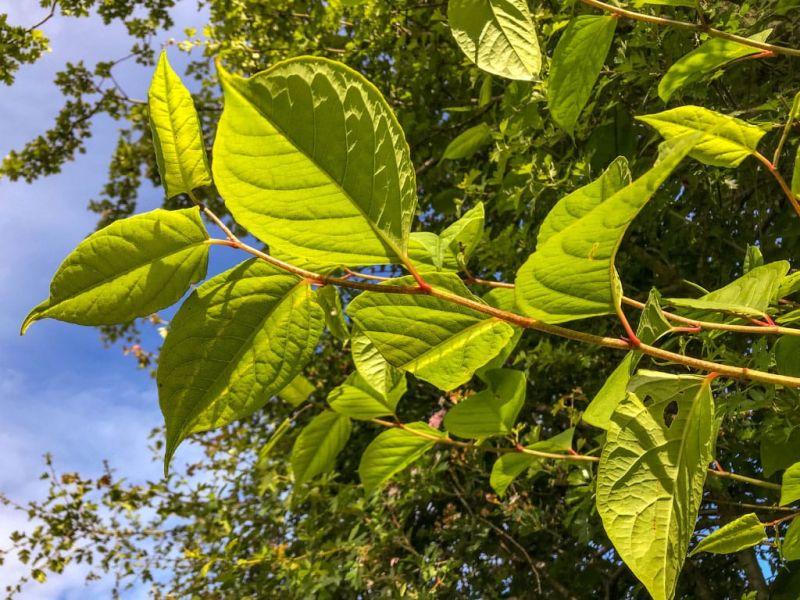RICS have published new guidelines which change the way Japanese knotweed is seen by mortgage brokers and buyers. And what a positive change this is for homeowners!

Why RICS relaxed their knotweed guidelines
In 2019, the government said that mortgage lenders were being "overly cautious" when assessing properties affected by Japanese knotweed. Since then, the Royal Institution of Chartered Surveyors (RICS) have worked alongside industry professionals and researchers to find out just how much knotweed actually damages property. Now, with their "improved understanding" of this invasive plant, RICS have published new Japanese knotweed regulations which are much kinder to homeowners.
Change made to Japanese knotweed property guidelines
As of March 2022, your property is only negatively affected by Japanese knotweed if the plant is visibly damaging the house. That is, RICS found the weed is less destructive than previously thought, saying: "Japanese knotweed poses little or no risk of structural damage to robust buildings with substantial foundations."
Rejoice homeowners! It is far less likely your home will be devalued because of Japanese knotweed. Nor will you struggle to sell, mortgage or remortgage your home.
The main changes to the RICS' regulations are as follows:
- A property is now only affected by Japanese knotweed if the plant is within 3 metres of the building, scrapping the previous 7 metre rule.
- Rather than assessing potential damage, surveyors now consider how much the growth prevents you from enjoying your garden.
- Again, the new rules focus more on the positive aspects a Japanese knotweed treatment plant will offer homeowners - to repair damages and enjoy the garden - rather than zero-in on the damage the plant may cause in the future.
- Surveyors will now use their professional opinions to determine just how much a property is a risk of being damaged by these invasive weeds.
- Japanese knotweed encroaching from neighbouring land is now identified as being an issue, requiring a surveyor to point out growth within 3 metres of the boundary.
Essentially, RICS' new guidelines allow the surveyor to use their own logic to assess if the house will be damaged by the plant in the future - which in most cases it will not. Sadly, these changes only apply to residential and not commercial properties affected by Japanese knotweed.
Japanese knotweed removal is still advised
Despite updates in the guidelines, if Japanese knotweed lurks in your garden, or even the neighbours', you should still seek to remove it.
As TCM's managing director Howard (Dr. Knotweed) Downer says: “I am cautiously optimistic about these new guidelines. Having worked with Japanese knotweed for over 25 years, I know how difficult it is to put any infestation into a simple A, B, C category. Japanese knotweed is a living plant and will spread faster than you think, given the right soil conditions.”
And although RIC's new Japanese knotweed property guidelines suggest that controlling Japanese knotweed should be the main object, TCM believe a good ol' dig and dump still offers benefits over herbicide treatments, as long as the work is performed by a trusted and reputable knotweed removal company!
Speak to us about your Japanese knotweed concerns by completing our contact form, and remember to always attach an image of your infestation so that we can correctly identify the plant, and quickly take action to eradicate the problem.
Comments (0)
Show All Comments
Leave a reply
Your email address will not be published.